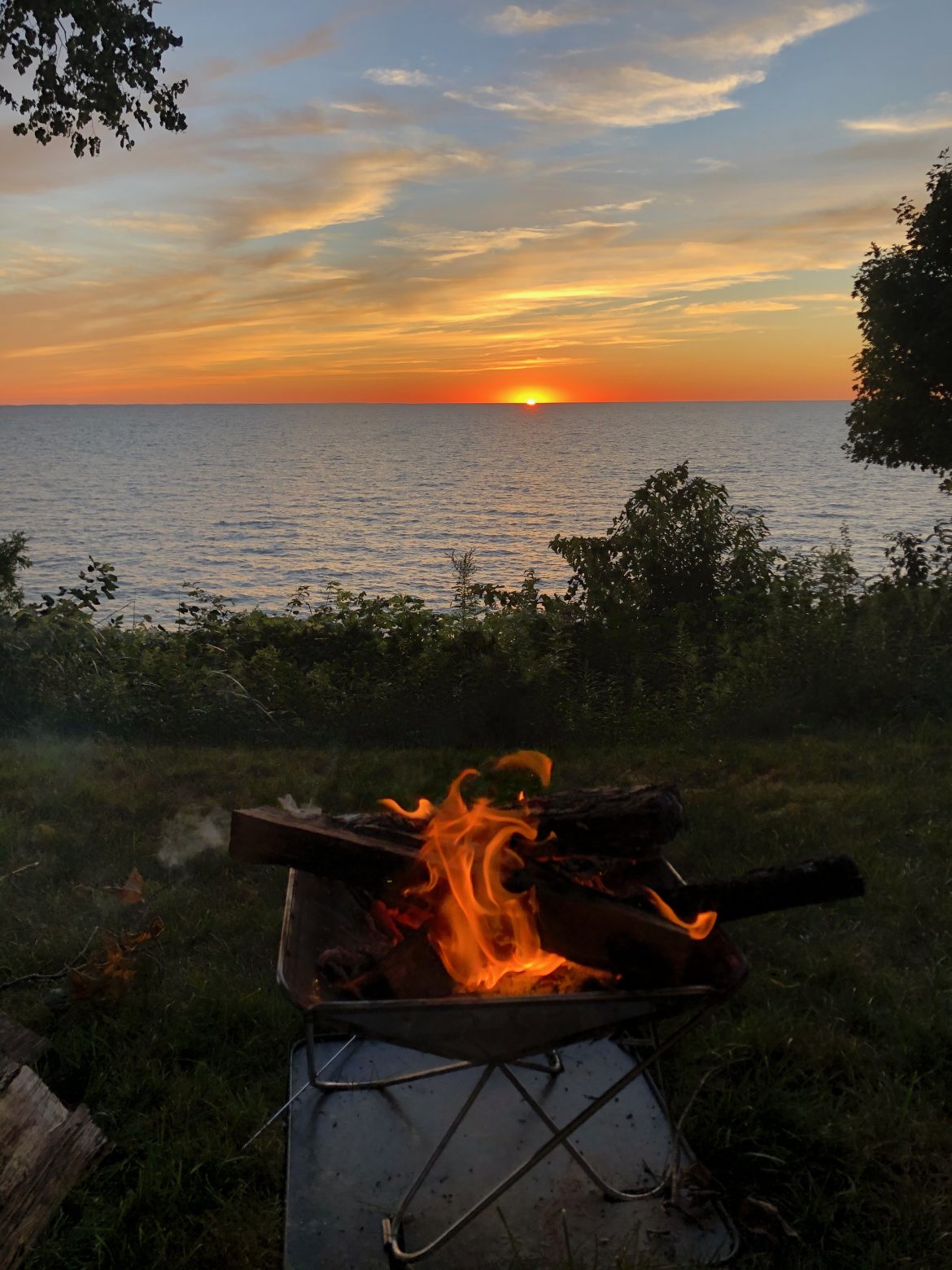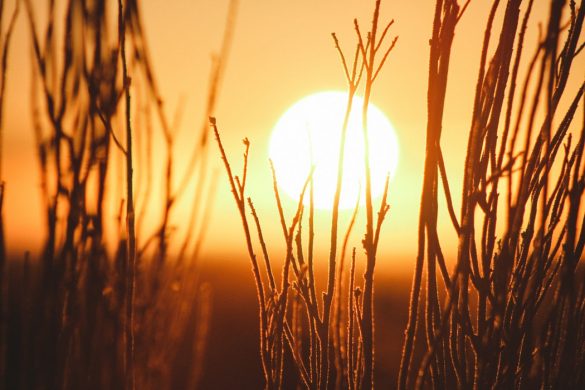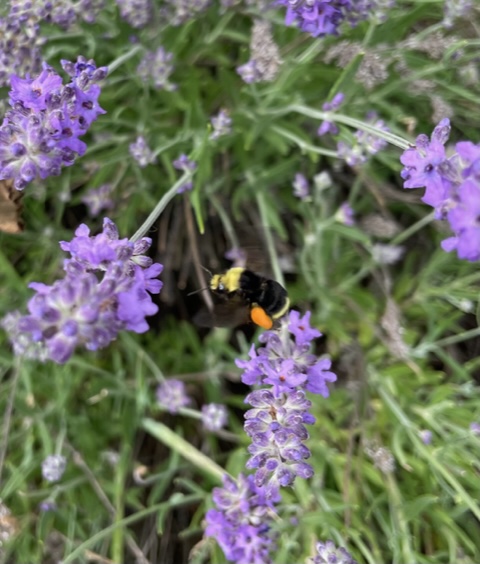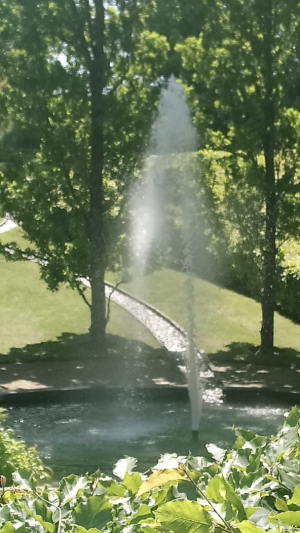We’re taking this time to revisit a lovely FreeRangeFriday post by Lilly Lewin because it’s International Fairy Day! This is one of only 2 posts in our entire blog history that mentions fairies, and it’s such a good one.
From August 2017:
As we consider the Shalom of God this month, one of the first things that came to mind, after savor, was the gift of WONDER!
Jesus says: “Let the little children come unto me.” And he places a child in the midst of his followers and says that the Kingdom belongs to the children. It is easy for children, they still have the gift of WONDER. Jesus also says that we need “ears to hear and eyes to see.” “Let he/she who has ears let them hear…”
I love Eugene Peterson’s version in The Message Bible…
“But you have God-blessed eyes—eyes that see! And God-blessed ears—ears that hear!”
I believe that our world needs to know, needs to experience the Wonder again in order to experience the shalom of God.
When I was in college I had a date with a guy who took me out for coffee and one of his first “get to know you questions” was “when you were a kid, did you color inside the lines, or outside the lines?” My answer was “I created my own coloring book!”
I didn’t know anything about the Ennegram back then, but I am a “7,” and this totally fits. Sevens are known to bring pixie dust wherever we go, and we are always on the look out for an adventure.
The thirteen grandchildren on my side of the family now expect me to bring my Mary Poppins bag filled with everything from crayons and stickers to sharpies, and post-It notes and maybe even bubbles, and always snacks. I don’t ever want to be bored or want anyone else to be bored either! Often my husband says that I’m really just five-years-old because I get really excited about a vista or buying balloons, and giving them away to people just for fun. My favorite part of the art museum is the part that is for kids and hands on learning. I am wired to see the fun and wonder in life. I know not everyone is wired like I am. And I know that there is a lot of suffering and conflict in our world and that it is often hard to see the wonder around us or find the joy in the hardness of life. Too often we miss the wonder because we get blinded by fear, anxiety, and too much conflict on social media.
Most people have to turn things off to get to WONDER.
If you are a production driven, achiever kind of person, you are checking your list off each day and typically taking time for WONDER is not on the list.
WONDER gets pushed out of life.
So you will need a change of venue.
And you might need to find some friends who come by WONDER naturally and start hanging out with them.
What are you interested in that brings you joy?
How did you experience the gift of WONDER as a kid?
Find the things that attract your less grown up self. Maybe it’s art, maybe it’s motorcycles, or design, or roller coasters, or backpacking, or trampolines, or dogs! Animals help us wonder because they aren’t sarcastic. Especially puppies! Go to the Humane Shelter and love on the dogs or play with the cats.
Volunteer to babysit a friend’s kids and see what they are thinking about and playing with.
Now that my kids are grown, I find friends with younger kids to go to movies with because I love animation but I don’t want to go alone.
And that brings us to laughter! We all need to laugh more!
WONDER will bring you to joy and laughter and sometimes tears.
Rediscover what makes you laugh.
Watch a great movie. One of my favorite movies that captures WONDER is “Finding Neverland” with Jonny Depp.
In this movie from 2004, Depp plays J. M. Barrie the author of “Peter Pan.” Barrie is a playwright who has had a couple of flops. He is looking for inspiration and one day while he is journaling in the park, Barrie meets the Davies family of three boys. The Davies children are still recovering from the loss of their father. Their mother, played by Kate Winslet, needs all the help she can get to keep her household going. Barrie already has a childlike wonder for the world but it is through his interaction with the boys that this wonder blooms and grows into the magnificent story of Peter Pan.
The story I tell in my curating worship workshops involves the opening night of Peter Pan. Barrie has asked that about 20 seats be left open, scattered throughout the theater. The curtain is ready to go up and the director/producer is ready to sell these empty seats. Just at the last moment, a line of small children walk up to the theater. They are orphans Barrie has invited to “seed” the audience. They know that dogs, and fairies and pirates are funny. These kids know when to laugh. And they haven’t lost their gift of WONDER! So their laughter helps the finely dressed, upper crusted London theater goers experience the joy and wonder of the play. They laugh too! They reconnect with WONDER!
Lord give me ears to hear
And the peace to actually listen.
Give me eyes to see
And the patience to actually pay attention!
Lord, give me ears to hear
And the ability to be still and hear you in the silence.
Give me new eyes to see the wonder all around me!
Give me new ears to hear the laughter and music, and experience your joy
rather than the static and the noise.
Give me child like wonder to see that ordinary things have extraordinary beauty.
Thank you for God-blessed eyes—eyes that see!
And God-blessed ears—ears that hear!
Thank you for the gift of WONDER.
Help me to experience this so I can share it with others. AMEN
find out more ways to bring child like wonder into worship at freerangeworship.com
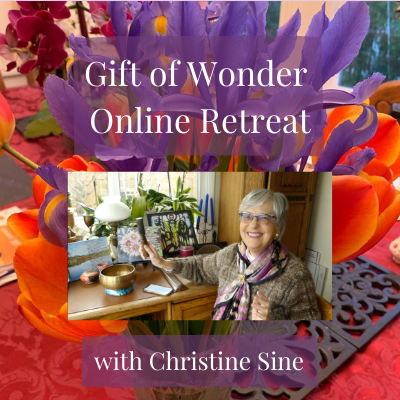
Want to experience more of the awe and wonder that God offers us? Check out the Gift of Wonder Online Retreat by Christine Sine. This retreat allows for 180 days of access for only $39.99 so you can move through the sessions at your own pace.
Are you tired? Worn out? Burned out on religion? Come to me. Get away with me and you’ll recover your life. I’ll show you how to take a real rest. Walk with me and work with me—watch how I do it. Learn the unforced rhythms of grace. I won’t lay anything heavy or ill-fitting on you. Keep company with me and you’ll learn to live freely and lightly.” Matthew 11:28-30 THE MESSAGE
Depending upon where you live, School has been out for over a month, or if you are in the UK you are just ending classes. In many places in the USA, school just got out in mid June. Regardless of when your summer began, you can consider what you want the next few weeks to look like and feel like.
What will you need to do to actually feel refreshed by September,
rather than more used up or burned out?
What do you need this summer? As a family? As a person? It seems “life after Covid” got really hectic again, and after being on hold for months, we all have jumped back into “reality” in full force.
What if we all just need to stop and take a breath?
Having a Summer that heals will take being intentional.
To be intentional is to think ahead.
To actually take the time to consider what you might want the summer to look like.
So, before we rush in and fill up the calendar with more and more activities ask:
What do you really need? What do you really want this summer to be?
What do you need as a family, and as a person?
Do you need more fun? Do you need to remember how to play, or do you need to plan time to rest; time for exploring and adventure; time in nature?
Or maybe you need less social media, or less streaming; less complaining; more time with friends;
Or more music, art, or exercise that is fun?
Just not more work!
How to Start:
1. Take the time to pray and think about this on your own.
2. Then talk with your partner or a friend for perspective.
3. Take time to consider what you want for your summer as a couple or as a family. Then have a meeting with your whole household, let your kids get involved in the process and ultimately in the planning of the summer ahead.
You might have everyone write down how they are feeling. Are they feeling excited about the weeks ahead? Are they feeling exhausted after the school year or the last few months of work/activities? Talk about where y’all really are.
Then ask the fun questions….
What would help you enjoy this summer more?
What things have you dreamed about having time to do but you haven’t had the chance?
You might need more than one time of sharing/planning. Give people time to think about their summer to look like, feel like, and what they don’t want too!
Share three to five things that you’d really like to do this summer… heck you can even have examples in photos you print out for visual learners!
Everything from sleeping late, to movie nights, to making s’mores, or playing mini golf, hiking in the woods, no phone nights, silent Saturdays, making cookies on a regular basis or playing a board game.
It could be baseball, or actually going to a special concert, or film. Each person will have a different list…Could everyone have a chance to experience what fun and refreshment means to them?
Here are some ideas:
Picnic Practice….my friend Anya Almgren plans a picnic each week. She does this on her own, but you could do this with your family, your partner, even with other families or friends. Pick a different park or place to go each week this summer. You can get everyone involved in the packing of the lunch or dinner or plan a different place to pick up carryout according to your time, energy and budget.
Let kids pick the food …have serval places in mind and a back up plan in case of rain. Indoor picnics can be fun too! Consider all the conversations that Jesus had around tables and along the way…so picnics!
Praying the Neighborhood: Be intentional about walking your dog. One of my spiritual practices is to pray for my neighbors and neighborhood as I walk my dog each day. Notice what’s going on, say hello to neighbors you see. Introduce yourself if you don’t know the people you meet. Ask Jesus to show you the needs around you. A deeper practice might include making cookies, or muffins for your neighbors as a way to begin to get to know them. You cannot love your neighbor well if you don’t really know them!
Wonder Walks…Christine Sine has a practice of doing a wonder walk everyday. She allows Jesus to surprise her with sights and sounds, the beauty along the way. What do you notice as you take a walk? Think about all the senses. What are the colors that spark your attention? What are the sounds you hear? The wind always reminds me of the Holy Spirit. I ask Jesus to fill me with more of His spirit as I walk. Take time to notice the flowers, birds, trees, even weeds can be beautiful. A deeper dive might be to learn about the kinds of flowers, birds, etc that grow around your neighborhood or to plant something and watch it grow. Gardening is a great spiritual practice! And something that can be done with all ages. Watch the sunset, sunrise or gaze at the stars together and talk about the wonder of God’s creation!
Family Field Trips:
Learn the history of faith in your town. Visit the oldest church or a church that worships in a different flavor than your tradition.
Do a food pilgrimage…Eat a different restaurant experiencing the food of different cultures. You might choose several over the course of the summer.
Go to an Art Museum: Let everyone choose their favorite painting or work of art and talk about it.
Create a Rest Space at home: Set aside an evening or afternoon each week to be “phone/device free” . Plan ahead and create a comfortable space where everyone can rest, read, play quietly. Talk about it before and after to so each person knows what to expect. You might start with 15 or 30 minutes of quiet and then build it into an hour or two to an entire evening or afternoon. What do you notice?
Allow this to be a time of refreshment.
Enjoy your summer! Let Jesus teach you his unforced rhythms of grace!
“We must believe we are worthy of rest. We don’t have to earn it. It is our birthright. It is one of our most ancient and primal needs.” Rev. Tricia Hersey The Nap Minister in Rest is Resistance
Lord,
There is nothing more important than what we are attending to.
There is nothing more urgent that we must hurry away to.
We Wait on you Lord God.
Your time is the right time.
We wait for You to make Your word clear to us.
We know that in time
and in the spirit of deep listening
and in quiet stillness
Your way will be clear. AMEN ( based on a prayer by Thomas Merton)
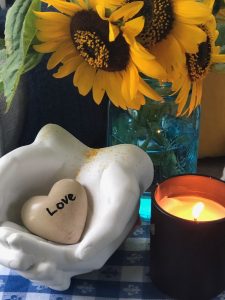
If you need help being more intentional this summer, you can kick start your practices by downloading THE GIFT of SACRED SUMMER . Includes practices that take five minutes and deep dives too…Gift of Silence, Rest, Play, Etc. For Individuals, family and small groups as well as a church kit here.
Maybe you need to take a break from normal life and refill your cup with the wonder of God. Join me on pilgrimage to Iona. THIS August 28-Sept. 4th. Finding Your Thinplace Retreat Pilgrimage.
First Posted on Youthfront Family Blog
By Jan Blencowe —
Probably the best known words of St. John the Baptist are “He must increase, but I must
decrease”. If you hail from a Christian tradition that marks the Saint’s Days around the wheel of
the Liturgical Year, then you’ll know that St. John’s Day falls on June 24th, the fourth day after
the summer solstice on June 21.
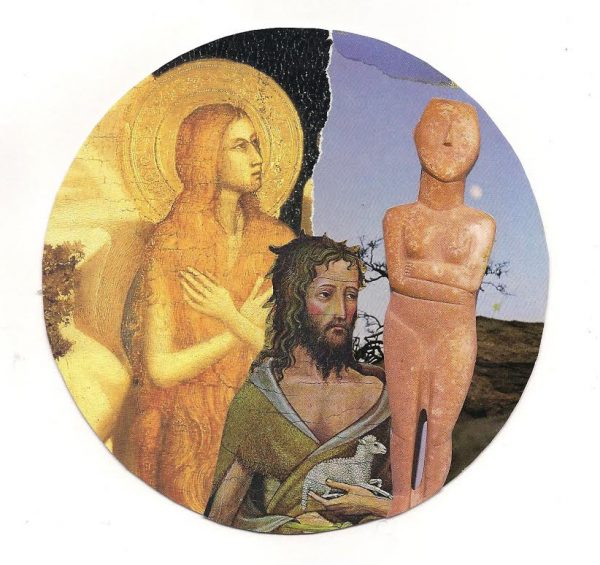
This alignment of holy remembering and natural phenomenon is no accident. In the Western
world our thinking for the past three centuries has been shaped and dominated by scientific
thought. We tend to hold in the highest regard that which can be known empirically, and so take
little notice of the carefully planned dates within the church year that are symbolically rich and
hold metaphors and mysteries for the soul to ponder. In fact, to experience these symbolically
significant seasons you must do so in the interior landscape of your soul. Yet, you may enter
that interior world through noticing and participating in the rhythms and events in nature and
even more so through the language of images used in the creative process.
At this moment in the year John’s famous words mirror perfectly what is happening in the
cosmos. The sun, which has been increasing its presence since its re-birth at the winter solstice
in December, and more dramatically so since the spring equinox in March, climbs higher in the
sky each day bringing with it the long days and short nights we associate with June.
At the summer solstice the sun seems to hover, standing still for three days. June 24 is the very
first day in the year that the sun begins to decrease and we lose the smallest fraction of daylight
hours. This is the day the Church marks as St. John’s Day, in part as a celebration of his insight
into the preeminence of The Christ and the transformation of The Self.
In our collective imagination across times and cultures the sun often represents force, power,
strength, and self. In short, ego. It is the decline of the out of balance ego or Self that I think
John is hinting at in his famous words which foreshadow Paul’s declaration that it is “no longer I
who live, but Christ lives in me” and dovetails with Jesus’ own words ‘Truly, truly, I say to you,
unless a grain of wheat falls into the earth and dies, it remains alone; but if it dies, it bears much
fruit.’
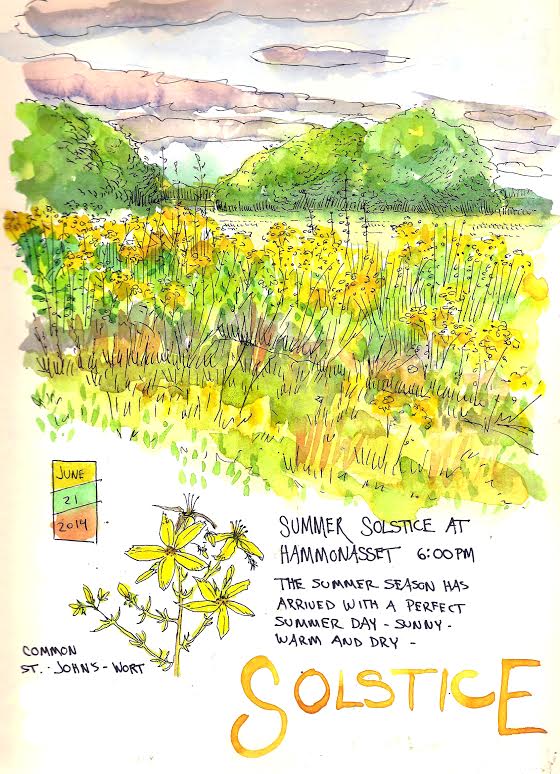 One of the ways my heart and mind are brought back around to this theme of increase and decrease, natural self and Christ-Self each year at this time is by creating art that delves into these potent internal movements of soul and self.
One of the ways my heart and mind are brought back around to this theme of increase and decrease, natural self and Christ-Self each year at this time is by creating art that delves into these potent internal movements of soul and self.
We all live in the body and in the spirit, in this world and in the other world at the same time. My two favorite art making types reflect this. My nature journal attunes me to the natural world and helps me unearth the spiritual wisdom hidden there. My mixed media work allows me to have a visual language that gives voice to the heart and soul.
Every summer solstice I take my nature journal and head out looking for St. John’s Wort, which is easy to find. You’re likely to find some in your area without having to look too hard. This naturalized wildflower originated in Europe, came with the settlers, and has since made its
home across much of North America. It blooms right at the summer solstice and St. John’s Day,
thus its name. Its botanical name is Hypericum perforatum. It sports a beautiful yellow, five
pointed, star shaped flower with long stamens, and has been dubbed a ray of Earth-bound
sunshine. It tends to creep and can fill wide open meadow spaces over time.
Sitting in a meadow of St.John’s Wort, soaking in the warmth of the sun, listening to the bees
humming their secret song, and focusing my gaze on the edges and outlines of flower and leaf
is a something I look forward to each June. Observational drawing is a quiet activity, and once
you get the hang of it, and your eye and your hand are working in concert, your mind is free to
wander a bit, musing and considering deeper thoughts as you work. The flowers of St. John’s
Wort become living icons, inviting me to sink deeply into the words increase and decrease and
what they might mean for me.
At the summer solstice I also like to work with found images that relate to the themes that
accompany summer solstice and St. John’s Day. By gathering images and combining them I
invite the inner wisdom of my soul to speak. These simple collages often hold powerful
message and expressions of my inner life. I like to call the process soul work.
Art can be drawing and painting, it can be tearing up images and gluing them down, it can be
planting a garden, it can be many, many things.
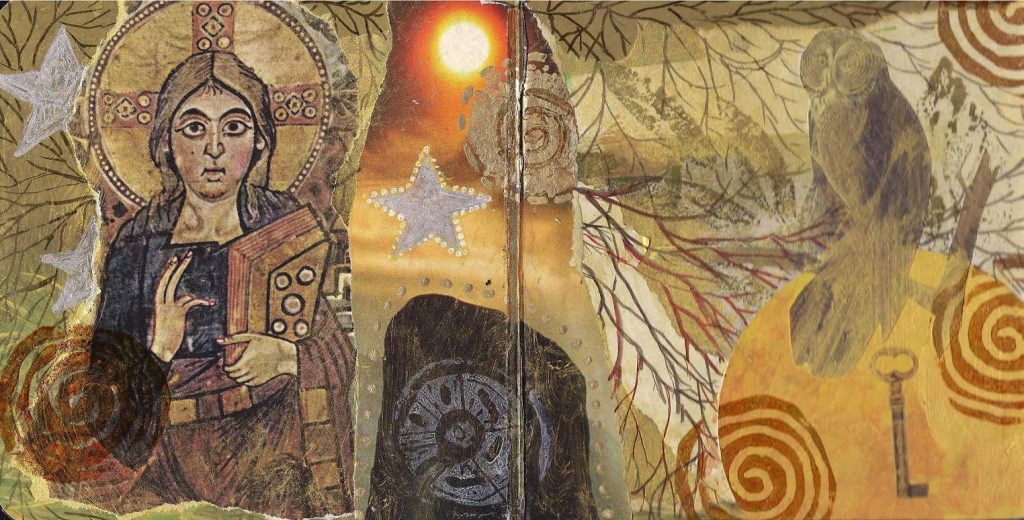
Marking the events of both the seasonal year and the liturgical year by creating art in any form,
is a powerful way to manifest the connectedness of your inner and outer life. It is a way to bring
the sacred forward and allow it to gently infuse all parts of your life and self with the grace that
harmonizes what must increase and what must decrease within your soul at this moment on
your journey.
I hope the brightness of this summer’s solstice day inspires you to create around the themes of
sun/son, increase/decrease, outer landscape/inner landscape in ways that are meaningful to
you.
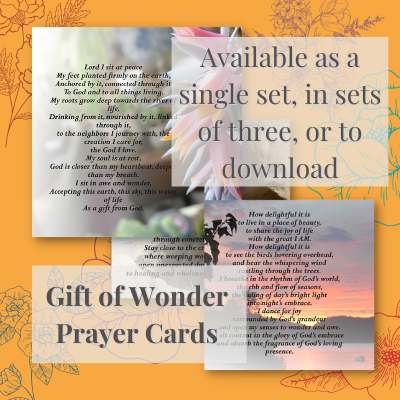 Enjoy the meditative focus of beautiful prayer cards. Open yourself to awe and wonder – or gift someone the joy of prayers and photographs by Christine Sine. Experience a piece of her excellent book through twelve prayers and reflections beautifully illustrated with photographs from Christine’s personal collection. Available in a single set, sets of three to share, or a convenient downloadable form to enjoy instantly. You can find these options and more in our shop!
Enjoy the meditative focus of beautiful prayer cards. Open yourself to awe and wonder – or gift someone the joy of prayers and photographs by Christine Sine. Experience a piece of her excellent book through twelve prayers and reflections beautifully illustrated with photographs from Christine’s personal collection. Available in a single set, sets of three to share, or a convenient downloadable form to enjoy instantly. You can find these options and more in our shop!
Monday, in the US we celebrated what is known as Juneteenth, a relatively new federal holiday, established just three years ago in the wake of the murder of George Floyd. It celebrates the end of slavery in the U.S. at the end of the Civil War. Unfortunately, modern-day slavery still exists in our world. It takes many forms, including forced labor, human trafficking, child exploitation, and bonded labour, a form of debt in which work is exchanged for a debt which, ultimately, can never be paid. Victims of slavery are found hidden in most of our countries. Often marginalized and vulnerable, they are trapped in horrific circumstances, their lives robbed of freedom and dignity. The prevalence of modern-day slavery is perpetuated by systemic inequalities, poverty, and vulnerability of marginalized people. So Juneteenth is not just a celebration of freedom. It is also a call to action. It challenges all of us to open our eyes to the injustices that still enslave millions around the world and prayerfully consider how we might make a difference in the lives of at least a few of these very vulnerable neighbours.
As I contemplated Juneteenth on Monday and considered the implications it has for my life, I was reminded of the words from Richard Rohr that I quoted in my Meditation Monday: Everything that Happens is Potentially Sacred “Everything that happens is potentially sacred if we allow it to be.” There is a sacredness to celebrations like Juneteenth, that calls us to a deeper commitment to Jesus who was the ultimate advocate for justice. This is a day not just remember what happened in the past, but also to commit ourselves to the unfinished work of justice, equality and liberation in the same way that he did.
Part of the purpose of Godspacelight is to better prepare us for this challenge. Through liturgies like that provided by Carol Dixon this week in Seasons of the Spirit and reflections like Lilly Lewin’s reflection on Beauty we seek to encourage flexibility and an openness to change that strengthens our ability to be the people of commitment and action that God intends us to be. Or as Jenny Gehman expresses it in her post Soft and Sacred God wants us “ To create softness in order to be more hospitable to the Holy.” And when we are more hospitable to the Holy, we are more open to changes that bring life into the circumstances others face.
As part of my preparation for Father’s Day on Sunday, I reposted one of my favourite Father’s Day posts God the Father Reimagined. In the same spirit, on Facebook I posted a meme “Why are some men so insecure that they cannot conceive of women preaching or teaching?” If you are interested you can read some of the discussion in the 243 comments on my personal Facebook page, or the lesser number of comments in the Godspacelight Community Group. It was a very lively discussion with people expressing very divergent viewpoints. I was pleased that no one got abusive and on the whole people listened graciously to what others said. These kinds of discussions can, I think create softness in all of us and we never know what pathway that softness to the Holy Spirit will lead us into. I found it to be a very helpful discussion. Let me know what you think.
Many blessings on you as you navigate the coming week
God of compassion,
Who reaches out and touches us,
when others turn away.
God of love,
Who heals our diseases,
When others reject us as incurable.
God of delight,
Who finds joy in us,
When we feel unworthy.
Fill the empty spaces of our lives.
Soften our spirits to your Holy presence.
Be with us this day and every day.
Christine Sine
 Did you know that alongside Christine Sine’s book The Gift of Wonder, we have many resources available to you? The free downloadable bonus packet or beautiful prayer cards featuring prayers from the book, for example – something to hold and behold! Or perhaps you’d like to journey through the book alongside a retreat – we have that too! You can check it all out in our shop!
Did you know that alongside Christine Sine’s book The Gift of Wonder, we have many resources available to you? The free downloadable bonus packet or beautiful prayer cards featuring prayers from the book, for example – something to hold and behold! Or perhaps you’d like to journey through the book alongside a retreat – we have that too! You can check it all out in our shop!
By Jenny Gehman
*Reprinted with permission from Anabaptist World magazine, AnabaptistWorld.org.*
Where do you go to set your soul down?
I find myself both craving and creating safe spaces these days. For myself as well as for others. In my private home and in my professional work.
I’m coming to realize this had its beginning way back in my late elementary/early teen years. Growing up as the middle child, I shared a room with one of my sisters. As the daughter of an alcoholic father in a sometimes angry household, I occasionally needed sheltered space just for me. A space, though I couldn’t have articulated it at that time, to set my soul down in safety.
My only feasible option during those years was a tiny closet tucked under our basement stairs. It was dark and airless, but private. That is, unless someone was doing laundry right outside the door.
Serving also as my mother’s pantry, this closet had shelves lining one wall stocked with Campbell’s tomato soup, Spam, Tang, Kool-Aid packets, Cheez-whiz and Pop-tarts. All the goodness of the 1970s was right within my reach.
After claiming this sliver of a space as my room, I went to work decorating the descending steps with red, silver and blue stick-on stars, under which I laid myself down.
Fast forward 40 years to the home of my own making. As I was healing from childhood hurts and grown-up griefs, I found myself once again craving a closet. While I hadn’t yet linked it to the one of my youth, I’ve since detected a theme.
This time, the closet of my choosing was a small storage room off our master bedroom which was, unfortunately, packed to the hilt with 25 years of accumulated goods.
Hubby and I cleared the clutter, painted, hung artwork and filled it with my favorite things. I sensed this little room sigh as it was unburdened and opened up. I bet it never knew it could become such a holy haven! I even bought glow-in-the-dark stars (a grade above the red, silver and blue ones of my youth) to hang on the ceiling.
It was a room made only for me. My family dubbed it the S.S. Jenny. The S’s were to stand for sacred space, as this was where I’d meet with God. But to me, they also stood for safe space, where I would pour out my soul to the same. This room became the container into which I could set my tired soul down. It holds me still.
Once this room was created, my grief poured out. Like one long exhale after a lifetime of holding my breath. I found I needed a room to hold me so I could let go. So I could unravel. So I could pour out. Nothing to hold together there, not even myself.
It’s now six years later. As I finish my spiritual-direction training, I’m feeling the stirrings yet again and have begun work on room No. 3.
Not quite a closet, this is a small area at the top of our stairs that our builder of almost 30 years ago didn’t quite know what to do with. At the time, we put pocket doors on it and asked him to line one wall with shelves so we could use it as a little home office. But it never quite lived up to its potential, and we eventually closed the doors to hide all it held.
With renewed vision, Hubby and I once again cleaned it out and painted the walls. We’re building a little book-nook bench and filling it with pillows and throws to cushion our stay. Instead of holding the canned goods of my youth, the shelves will soon burgeon with books that feed my soul. And the ceiling? You guessed it. The ceiling will shine forth with my signature stars.
The psalmist wrote, “God is a safe place to hide” (Psalm 46:1, Message). To which I would add, “and to set our souls down.” Is this what Jesus was alluding to when he instructed his followers to go into a closet to pray?
“Here’s what I want you to do: Find a quiet, secluded place so you won’t be tempted to role-play before God. Just be there as simply and honestly as you can manage. The focus will shift from you to God, and you will begin to sense his grace” (Matthew 6:6, Message).
Part of my work as a spiritual director is to create (and be) such a space for others. A safe space to set their souls down and sift through what’s there. Who or what is that for you?
What are you holding, dear reader? What or who are the spaces that hold you? Where do you go to sigh it out and set it all down?
“God’s a safe-house for the battered, a sanctuary during bad times. The moment you arrive, you relax; you’re never sorry you knocked” (Psalm 9:9-10, Message).
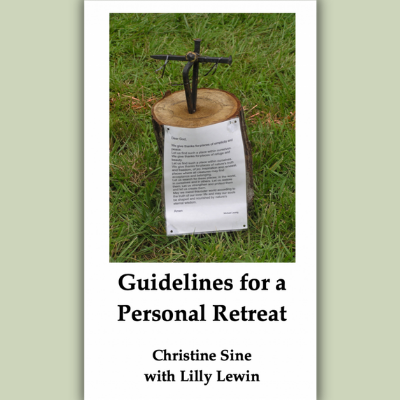
Creating a Personal Retreat
No matter the time of year, it’s important to pause and take time to reset and restore. An excellent way to do that? Take a personal retreat. Building a retreat into the rhythm of your life is a spiritual practice often lost in our helter-skelter, busyness-is-next-to-godliness world. This booklet is based on the most popular posts about spiritual retreats published on Godspacelight.com over the last few years and provides resources for taking a spiritual retreat either on your own or with a friend or spouse. Check it out in our shop!
by Christine Sine,
It has been a rough couple of weeks. First I got COVID. Then my husband did and we spent the last week moping round the house. Fortunately we only had minor symptoms but it still disrupted our lives . It was easy to focus on what we missed rather than what we gained.
Then I read the newsletter from good friends in Britain who a couple of weeks ago, were in a horrific car accident in which their car flipped as they passed a farm vehicle on a narrow road. Fortunately neither of them were seriously injured though they had a lot of bruises and a couple of broken ribs between them. It certainly disrupted their lives though. In one of his notes to us our friend shared this quote from Richard Rohr
Everything that happens is potentially sacred if we allow it to be. Once we can accept that God is in all circumstances, and that God can and will use even bad situations for good, then everything becomes an occasion for good and an occasion for God.
Our task is to find the good, the true, and the beautiful in everything—even, and most especially, in the problematic. The bad is never strong enough to counteract the good. We can most easily learn this through some form of contemplative practice. In contemplation we learn to trust our Vital Center over all the passing snags of emotions and obsessive thinking. Once we deepen contact with our strong and loving soul, which is also the Indwelling Spirit, we are no longer pulled to and fro with every passing feeling. This is the peace that Jesus gives, a peace that nothing else can give, and that no one can take from us (see John 14:27).
Looking for God’s presence in the midst of disease, disaster and disappointment is not always easy. Often it means reorienting our lives so that we focus on the good and beautiful rather than on the painful and seemingly bad. Sometimes it just means refusing what we talk about. I know that has been the case for me this week. Reminding myself of how fortunate we are to be fully vaccinated and boosted as well as having the antiviral Paxlovid freely available are both huge blessings and gifts from God. Tragically I read this week that only 20% of those who are eligible for Paxlovid actually take it. Some end up in hospital as a result.
How often I wonder do we miss the best that God has for us because we fail to take the steps we should to protect ourselves and return us to health, both physical and spiritual? How often do we miss the sacredness of each moment in the day because we do not take a few precious minutes at the beginning of the day to focus on God’s loving presence in and around us?
Bad news always travels faster than good news. That is not just true in our culture, but also in our minds where it is easier for us to hold onto the negative thoughts that revolve in our brains than onto the positive. Evidently our minds focus much more on negative stimuli because negative events could threaten survival whereas positive events wouldn’t. It’s one of the reasons that advertisers are more likely to tell us what we will miss out on if we don’t buy something, than focusing on what we gain if we do.
It’s sad but true. Holding onto the sacredness of a moment, finding the good in the midst of bad, focusing on God when we are sick or depressed or faced with horrific news, does not come naturally, which is why it is so important to deliberately look for the good and the sacred and the uplifting. And as Richard Rohr says contemplative practices are often a good place to start. Gratitude practices, awe and wonder walks, looking for the beautiful , sharing with friends and family who give you joy can have the same effect. My awe and wonder walks around the garden plus talking to friends and family were what I found most nourishing this last week. I was particularly fascinated by the bee in the photo above. Its constant flitting in and out of the flowers, in spite of the fact that it already seemed to have a full load of pollen, fascinated me.
So make sure you take time today to focus on the good and the beautiful and allow them to draw you into God’s presence.
I sit,
Encircled by God’s love,
Embraced by God’s presence,
Filled with God’s light
I sit,
Savoring the wonder,
I am made from the soil,
Yet filled with divine life.
I sit
Overflowing with awe,
God is everywhere,
God is within me.
(c) Christine Sine
by Carol Dixon
I loved reading Christine’s post about the Seasons of our spiritual lives and realised I had missed one of the important seasons which I usually enjoy – Trinity Sunday when we celebrate our triune God, Father, Son, and Holy Spirit, so beloved of the Celtic Christians. One of my favourite (& unusual) descriptions of the Trinity is in the story book by William Paul Young ‘The Shack’ where they are characterised as a large jolly black woman, ‘Papa’ who loves cooking for people, a young vibrant master craftsman, the Carpenter who mends broken things, and a dreamy person with an Asian name who drifts in and out tending the garden. To me personally in my prayer life the Trinity are different aspects of God at different times and sometimes I am aware of one particular characteristic of God and at other times a complete inseparable whole who are bound together by love and who enfold me in that love.
Although I missed going to church on Trinity Sunday this year I was blest by a wonderful act of worship prepared by my friend Margery Tate (who introduced me to the wonders of Godspacelight.com) later that week when she sent out our monthly service for the Companions of Brother Lawrence, an ecumenical prayer fellowship we both belong to as we and others try to Practice the Presence of God in our daily lives as Brother Lawrence did. I have posted her beautiful Trinity service below – including one of John der Laar’s wonderful prayers- and hope you find it as uplifting as I did. (In the prayers where she mentions Companions you may like to substitute the names of those close to you and people you know to be in need of prayer.)
A service celebrating the Trinity
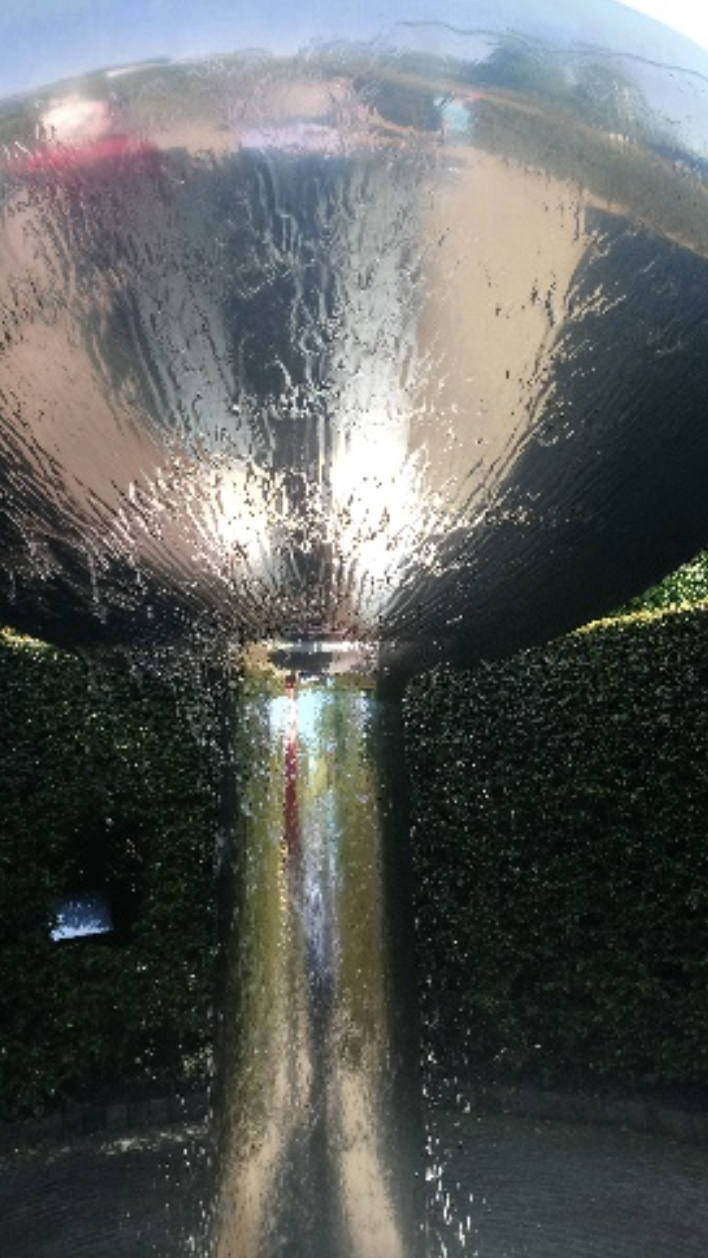
Words of Gathering
We gather to meet with God,
Father, Son and Holy Spirit.
To be aware of your presence this day,
For you, Lord, are here now and your Spirit dwells within us
We have come to bring you our worship
And offer you our praise.
Help us to be conscious that you walk beside us.
We do not make the journey alone.
Father, Son and Holy Spirit, draw near to us
As we draw near to you. Amen
Dot Woods, in “Sunday Mid-day Prayer,” posted on Lighting Beacons. http://lighting-beacons-liturgy.com/
Hymn – As we are gathered
Read – Genesis Chapter 1 v 1 – 31
When God Imagined Me
In the midst of darkness & chaos…
God imagined.
In the fury & darkness…
God imagined a world filled with trees,
and blue skies and fluffy white clouds.
In the meadow, God stood and…
imagined foxes, bluebirds, and slithering snakes.
In a world of rainstorms and wildlife
and cattle and grasses blowing in the breeze…
God imagined humanity.
God imagined the continuum from man to woman.
In a world teeming with billions of people…
God imagined me.
God imagined you and God imagined me.
We are created in the image of God.
God imagined us all. God loves each of us.
Let us worship with the same imagination
as the creating One! Amen.
© Tim Graves, LiturgyBits. https://liturgybits.wordpress.com
Sing – Father we adore you, lay our lives before you. How we love you.
Jesus we adore you……
Spirit we adore you…….
Time of reflection – Three become one
Look at the examples below.
Select one or two to consider more deeply.
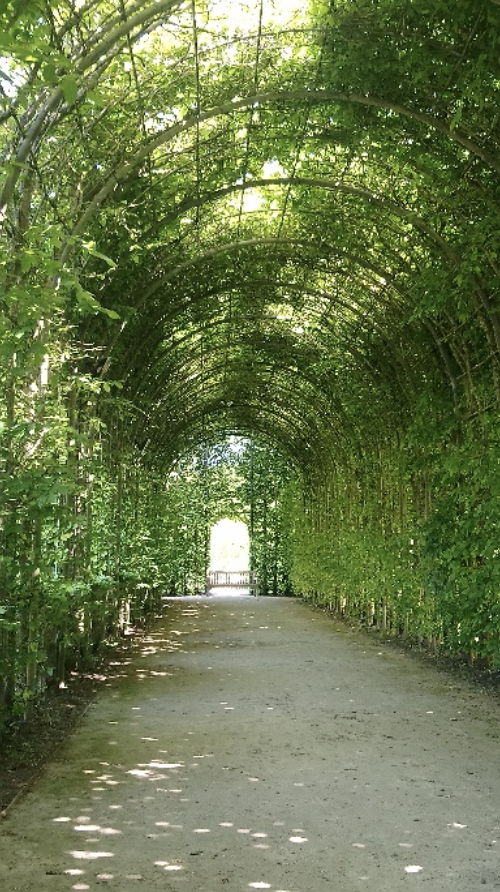
Sap – Branch – leaves = Tree
Composer – Musician – Instrument = Music
Electricity – Filament – Bulb = Light
Tyre – Hub – Spokes = Bike wheel
Water – Ice – Steam = H20
Envelope – Stamp – Writing paper – Letter
Caterpillar – Egg – Cocoon = Butterfly
Body – Mind – Spirit = Human being
Page – Cover – Binding = Book
Hand – Pen – Ink = Writing
Faith – Hope – Love = Virtues
Now consider the blessed Trinity, Father, Son and Holy Spirit.
Reflect on the times when you have experienced God as Father, Son and Holy Spirit.
Bring to mind your fellow Companions of Brother Lawrence.
The Companion’s Prayer-
O, God here we are, all devoted to you; make us according to your heart. In Christ make us one that the world may believe; mould us according to your heart.
Now pray for your fellow Companions/friends and loved ones in the name of the Father, Son and Holy Spirit.
Hold them in the circle of God’s love and protection.
Consider using this version of St. Patrick’s Breastplate
I bind unto myself and my fellow Companions (friends and loved ones) this day,
The power of God to guide us, the might of God to uphold us, the wisdom of God to teach us, the eye of God to watch over us, the ear of God to hear us, the Word of God to speak for us, the hand of God to protect us, the way of God to lie before us, the shield of God to shelter us, the host of God to defend us.
In the name of the Father, the Son and the Holy Spirit. Amen
Life-Giving, Restoring, Fulfilling God
The Word you spoke, and keep speaking, O God
is the life, the sustenance,
of all that is – seen and unseen.
The Life you gave, and keep giving, O Christ
is the recreation, the renewed birth
of every broken, wounded and sinful creature.
The breath you breathed, and keep breathing, O Spirit
is the inspiration for creativity, compassion and community that connects and unites all that God has made.
Life-giving, Life-restoring, Life-fulfilling God,
May our worship honour you
May our hearts be devoted to you
and our lives completely given over to you. Amen.
- Copyright © John van de Laar, on his excellent Sacredise website.
Words of Brother Lawrence
We must go on working, for in the life of the spirit not to go on is to lose ground. Those who have the mind of the Holy Spirit sail on, even when they are asleep. If this small ship of our soul is still beaten by the winds and the storm, let us awaken the Lord who sleeps in it and he will calm the sea.
Hear the Lord say to you “My peace I give to you.”
Blessing
May the grace of our Lord Jesus Christ, the love of God and the fellowship of the Holy Spirit be with us all, forever more. Amen.
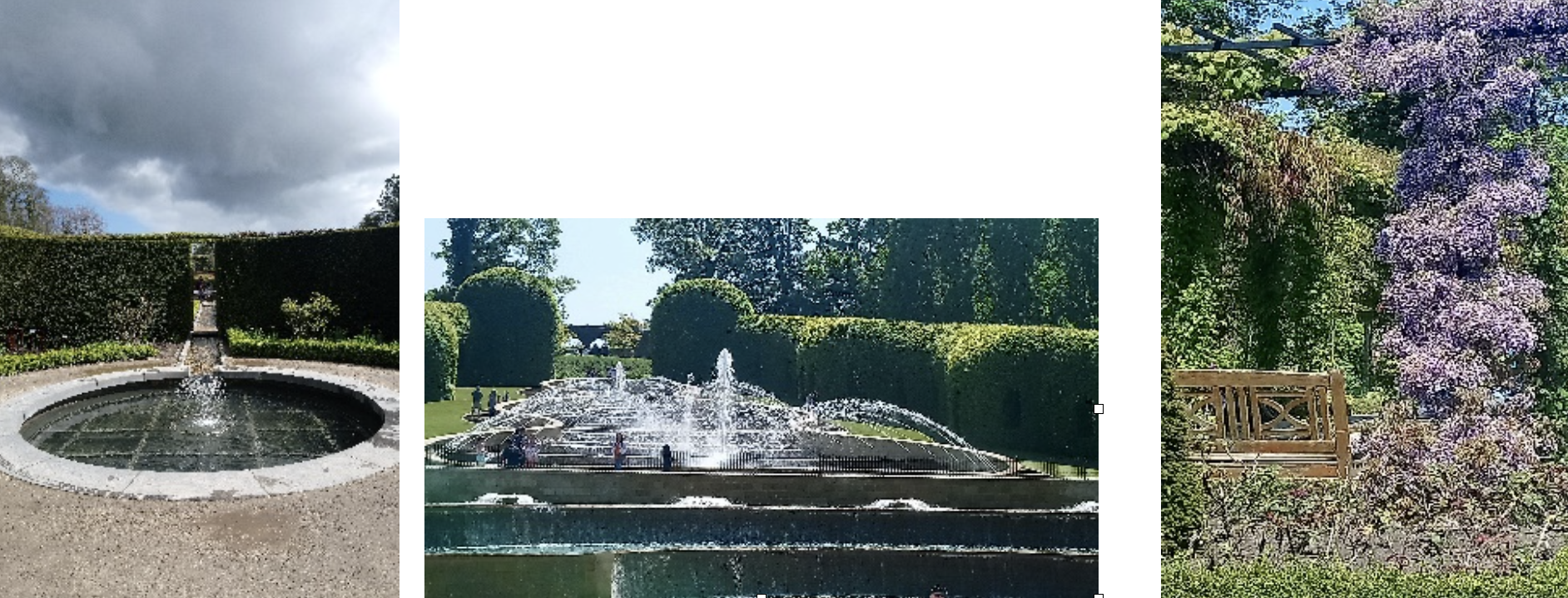
As an Amazon Associate, I receive a small amount for purchases made through appropriate links.
Thank you for supporting Godspace in this way.
When referencing or quoting Godspace Light, please be sure to include the Author (Christine Sine unless otherwise noted), the Title of the article or resource, the Source link where appropriate, and ©Godspacelight.com. Thank you!


